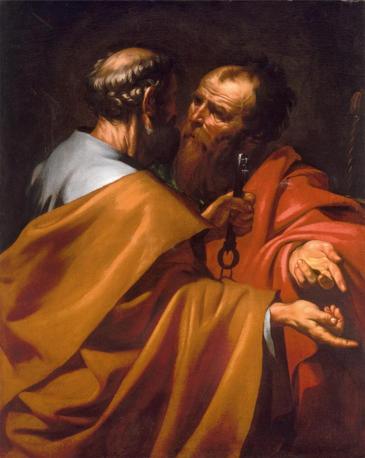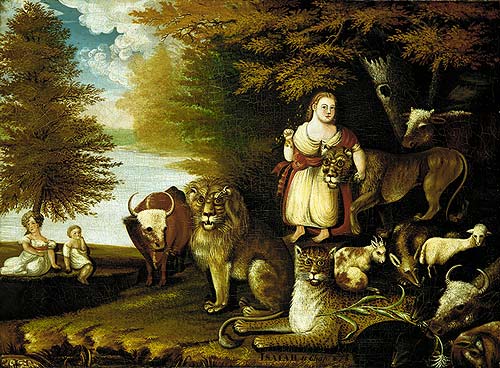As regular readers of this blog have no doubt seen, a few of us are doing series of posts connected to the 12th annual summer meeting of New Wine, New Wineskins. Tom Bushlack has a post here; Andrew Kim posted the thoughts of New Wine’s founder, Bill Mattison; and Andrew also had some unique reflections of his own.
This was my last New Wineskins, an event that is perhaps the Platonic form of “bittersweet.” While I am of course very happy to have received tenure and promotion (the sweet part), this means that I’m now officially old wine, and I’m quite rightly kicked out of the group (the bitter part). New Wineskins has been very, very important for my formation as a moral theologian—and, indeed, as a person. The importance of the insights and friendships I have developed over the years at this conference cannot be calculated.
And that leads me to one of the several things that makes New Wineskins unique and awesome: its self-conscious design to foster fellowship. From regular meals and prayer together, to the evening-stretching-to-morning conversations and arguments, there simply isn’t anything like what goes on at New Wineskins at any of the many other conferences I’ve attended.
Another thing which has made New Wineskins unique and awesome is its historical commitment to genuine theological diversity. This year’s senior scholar was Bill Cavanaugh. Last year’s was Bryan Massingale. And look at the theological diversity present in the rest of the senior scholars who have addressed the group:
Barron, Robert. Mundelein Seminary. “Reflections on the Priority of Christ: Toward a Postliberal Catholicism.” 2008.
Cahill, Lisa Sowle. Boston College.“Sex, Gender, and Christian Ethics.” 2007.
Finn, Daniel. St. John’s University, “History and Method of Moral Theology on Economics”, 2010
Hauerwas, Stanley. Duke University. “The State of the University.” 2009.
Keenan, James. SJ, Boston College “A History of Catholic Moral Theology in the Twentieth Century: From Confessing Sins to Liberating Consciences”, 2011.
Mattison, William. Catholic University of America. Founding member of New Wine, New Wineskins, 2012.
Odozor, Paulinus Ikechukwu, C.S.Sp. University of Notre Dame. “Moral Theology in an Age of Renewal.” 2006.
Porter, Jean. University of Notre Dame. “Nature as Reason.” 2005.
Historically, the moralists who have attended New Wineskins have also been theologically diverse. As Mattison’s post cited above shows, this was a central part of the founding of the group. New Wineskins saw debates happen that wouldn’t take place anywhere else. All points of view were subject to (sometimes intense) critical scrutiny. No argument received safe quarter or cheerleading questions from the audience. Whatever position you took, there would be attendees that would ask you difficult, penetrating and informed questions—both in the formal question/answer sessions, and in the more informal (and more…lubricated) evening sessions.
This worked because Bill and others at the founding managed to create a culture and space of safety, trust and openness such that the intense debate was able to stay at the level of ideas. Persons were loved and welcomed, not attacked. But having been invited to post my thoughts as I leave New Wineskins, and in the spirit of the group as I just described it, I do want to leave with a critical—though, I hope, helpful—observation.
It seems clear to me that, especially over the last 2-3 years, the group is getting less theologically diverse. For lack of better categories (again), those who have more liberal (or, perhaps better, ‘prophetic’) orientations have not been well-represented. From my perspective at least, the clear majority (maybe 70-80%?) of those attending have the official teaching of the Church as their starting point. If it continues, this trend will threaten one of the most important aspects of New Wineskins.
There are likely several reasons for the trend, but let me speculate about a couple of them.
First, it is often very difficult to keep discussion about the deeply controversial issues that come up at New Wineskins at the level of ideas. Especially for women and gays/lesbians, for example, discussions of sexuality, gender, ethics, and Church power structures can become discussions which are de facto about them as persons as well. Despite an effort to be welcoming and loving, the fact that New Wineskins is determined to go after the most difficult topics can create a space where some may feel less than safe and welcome. Perhaps New Wineskins can be even more clear about the fact that all are truly welcome, and to work even harder to make the space as safe as possible for every moral theologian who attends.
Second, I suspect that something is in play that was implied in the CTSA report on theological diversity. Too often (though there are important exceptions), conference presentations in theology end up being the equivalent of a vice-presidential candidate’s address at her party’s national convention. Lots of red meat thrown the crowd’s way—which elicits predictable applause and other affirmation. Even respondents are often (though, again, there are important exceptions) set up basically to say, “You know what, you did a great job…and your only mistake is you didn’t know how right you are about this. Let me tell you about another way in which you are right.” That’s not what happens at New Wineskins. Even those who are generally supportive of a particular argument subject it to critical questions. Many theologians–at least from my perspective–have become less comfortable with public criticism of their views, and this may be another reason why New Wineskins has become less diverse. But conference presentations are not about the presenter, but rather about the diverse community in the audience. We do that audience no favors by simply offering one point of view without substantive, critical rejoinders which reflect the full complexity of the issue being addressed.
Especially in light of the CTSA/ACT split, the role that New Wineskins plays is more important than ever. Spaces where all orthodoxies (conservative, liberal, academic, ecclesial) are sharpened via critical engagement—where a diverse group of participants are welcomed and loved—are becoming increasingly rare. Here’s hoping that the meeting room and basement of Moreau continue to be those kinds of spaces.





